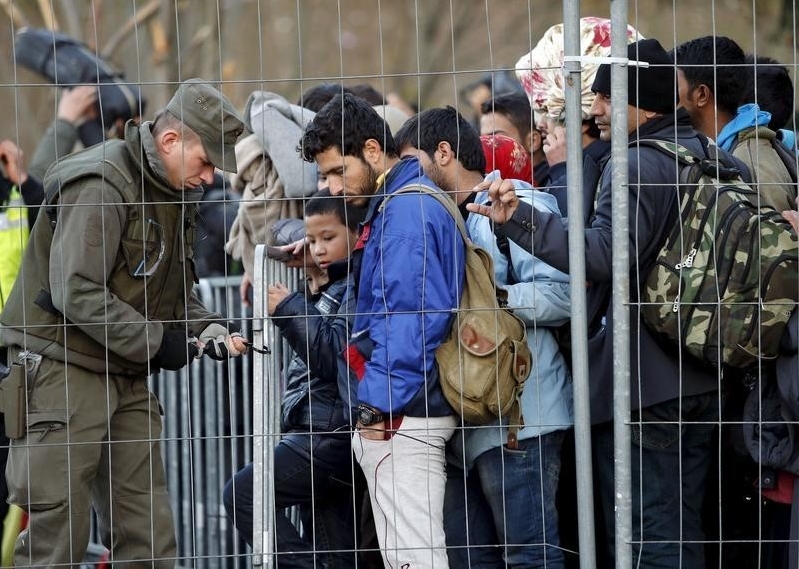
Hundreds of refugees entering Norway have been discovered with images of Islamic State flags, executions, and severed heads on their on their mobile phones, exacerbating widespread concerns the terrorist group may be using the refugee crisis to smuggle extremists into Europe.
According to a report from the Independent, the Police Immigration (PU) in Norway have been working under severe pressure to register the thousands of refugees who hope to seek asylum in the country after feeling ISIS rule in various regions in the Middle East.
However, police told the Norwegian newspaper Nettavisen "hundreds" of examples of "photos and videos of executions and horrific punishments, such as images of people holding up severed heads or hands" have been found after searching the luggage and phones of new asylum seekers. Additionally, authorities discovered numerous examples of ISIS flags and symbols belonging to other terrorist groups.
"There are several reasons why there may be such images. One is that they could have been a witness and want to show people what they have seen," said Erik Haugland, the head of Norway's asylum program, RT reports. "Alternatively, they could have been carrying symbols associated with terror groups which they were passing through. Although it may look alarming, there may be other explanations rather than support for terrorist organizations."
Despite Haugland's assertions, the discoveries further deepen widespread fears ISIS may be using the refugee crisis to smuggle jihadist fighters into Europe. In November, it was revealed that one of the Paris terrorists who killed more than 120 people entered Europe as just another face in the crowd -- hidden among the current wave of Syrian war refugees.
"The debate over refugees has shifted significantly during the autumn, from a discussion marked by sympathy and compassion to one concerned with the problems that refugees and immigrants bring," political scientist Johannes Bergh, of the Institute for Social Research, told the Dagbladet newspaper.
The Independent notes that this is not the first time police have found disturbing images in the possession of refugees, as earlier this year, similar ISIS-linked photos were found among the belongings of asylum seekers.
Speaking to Norwegian newspaper Dagsavisen in March, a director of the Norwegian government asylum division explained that due to the growing number of refugees, it's nearly impossible to conduct thorough background checks.
"It can be very demanding to find out who these people are and what they have done," she said. "We have to detect whether they have taken part in terrorist operations, deserted a terrorist operation or defected from a terrorist organization, and that's critical for our evaluation of their application".
According to the UNHCR, since 2008, between 90 and 100 people have been denied asylum due affiliation with a terrorist group. However, the number of asylum seekers making first-time applications in Norway has been steadily rising throughout this year: in January the number stood at just 570 but in October, the most recent month recorded, the total hit 8,575.
Meanwhile, FBI director James Comey testified before the Senate Judiciary Committee on December 9, saying that IS had at least one specialized printing machine used to print authentic-looking Syrian passports and plenty of blanks.
"The intelligence community is concerned that they [IS] have the ability, the capability to manufacture fraudulent passports, which is a concern in any setting," Comey told US legislators, according to CNN.
Responding to Comey's comments, State Department spokesman John Kirby emphasized that government officials are "mindful" that terrorists could be making false passports.
"We have been aware of reports, not just in the press, that they may have obtained this capability," he said. "Obviously, it's something that we take seriously. It's obviously something, clearly that we're mindful of."







